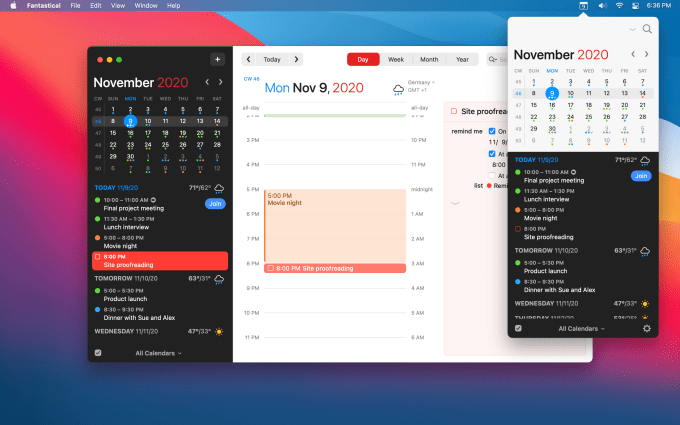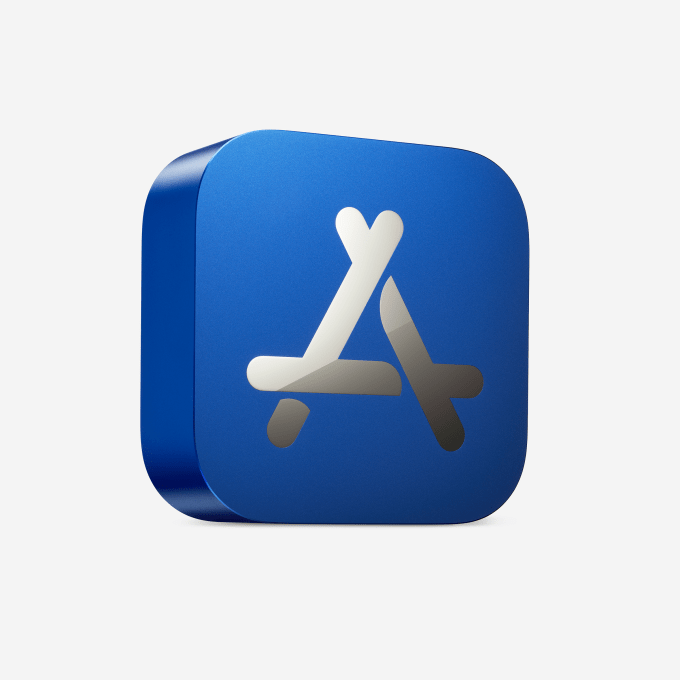News: Apple releases its ‘Best of 2020’ App Store winners and most downloaded apps of the year
Apple today released its highly anticipated annual list of the best apps and games of 2020. As in previous years, App Store editors selected the winners based on factors like the app’s quality, creative design, usability and use of Apple technology, among other things. The “Best of 2020” winners this year include a number of
Apple today released its highly anticipated annual list of the best apps and games of 2020. As in previous years, App Store editors selected the winners based on factors like the app’s quality, creative design, usability and use of Apple technology, among other things. The “Best of 2020” winners this year include a number of apps that helped people transition to a life spent at home. For example, home workout app Wakeout! won iPhone App of the Year, while Zoom snagged the top spot as the iPad App of the Year.
Disney+, which helped families keep kids entertained during coronavirus lockdowns, won for Apple TV App of the Year. The streaming service had just won “best app” in Google Play’s User Choice category, announced on Tuesday alongside its other Play Store winners.

Image Credits: Wakeout!
Top games of the year highlighted our collective need for escapism, often to fantasy worlds. This year, the list of game winners included Genshin Impact (also a Play Store “best game” winner) for iPhone Game of the Year; Legends of Runeterra as iPad Game of the Year; Disco Elysium as Mac Game of the Year; Dandara Trials of Fear as Apple TV Game of the Year; and Sneaky Sasquatch as the Apple Arcade Game of the Year.

Image Credits: Fantastical
Meanwhile, productivity app Fantastical won as Apple’s Mac App of the Year, a reflection of our new work-from-home lifestyles.
A relaxation and sleep app, Endel, won Apple Watch App of the Year.

Image Credits: Endel
It’s not surprising to see another relaxation app win a top app of the year accolade. Google just awarded sleep app, Loóna, the title of best app of 2020 on Tuesday, as well.
2020 has been a tough year filled with stressful events, including not only the COVID-19 pandemic, but Trump’s impeachment and November’s contentious U.S. presidential elections, the biggest stock market crash since ’87, protests and riots over racial injustice, wildfires in Australia and the U.S. West, the Weinstein verdict, Brexit, the deadly Beirut explosion, violence in Delhi, the Hong Kong protests, locust swarms in East Africa and deaths of prominent figures like Ruth Bader Ginsburg, Kobe Bryant Chadwick Boseman and others.
As Apple explained in its announcement, apps are a reflection of culture. And this year, they reflected people’s focus on self-care and mental health, remote work and learning, staying connected with family and friends, interactive and social gaming, and more.

Image Credits: Pokémon GO
Apple selected a handful of apps to reflect these “app trends,” including self-care app Shine, remote learning app Explain Everything Whiteboard, family messaging app Caribu, charitable giving app SharetheMeal and the revamped Pokémon GO, which shifted to support indoor gaming.
“This year, more than ever before, some of our most creative and connected moments happened in apps. This was thanks to the amazing work of developers who introduced fresh, helpful app experiences throughout the year,” said Phil Schiller, Apple Fellow, in a statement. “Around the world, we saw remarkable efforts from so many developers, and these Best of 2020 winners are 15 outstanding examples of that innovation,” he added.

Image Credits: Apple
This year’s “Best of” winners will receive the first-ever physical App Store Best of 2020 award, featuring the App Store logo set into 100% recycled aluminum, with the winner’s name on the side.
Apple also unveiled the most downloaded apps and games of the year, which, unlike its “best of” editorial selections, are a showcase of real consumer demand.
Not surprisingly, these lists included remote work must-haves like Zoom and Gmail; a number of escapist games and, not coincidentally, pandemic simulator Plague, Inc.; the viral hit Among Us! ,which even AOC live-streamed; kids’ “metaverse” platforms like Minecraft and Roblox; and the usual set of top social apps — this year led by TikTok, not a Facebook-owned app.
The most-downloaded apps and games of 2020 were, as follows:
Top Free iPhone Apps
- ZOOM Cloud Meetings
- TikTok
- Disney+
- YouTube
- Snapchat
- Messenger
- Gmail
- Cash App
Top Paid iPhone Apps
- TouchRetouch
- Procreate Pocket
- Dark Sky Weather
- Facetune
- HotSchedules
- AutoSleep Track Sleep
- The Wonder Weeks
- SkyView
- Shadowrocket
- Sky Guide
Top Free iPhone Games
- Among Us!
- Call of Duty: Mobile
- Roblox
- Subway Surfers
- Ink Inc. – Tattoo Drawing
- Magic Tiles 3: Piano Game
- Brain Test: Tricky Puzzles
- Brain Out
- Coin Master
- Cube Surfer!
Top Paid iPhone Games
- Minecraft
- Plague Inc.
- Heads Up!
- Monopoly
- Bloons TD6
- Geometry Dash
- NBA 2K20
- Grand Theft Auto: San Andreas
- The Game of Life
- True Skate
Top Free iPad Apps
- ZOOM Cloud Meetings
- Disney+
- YouTube
- Netflix
- Google Chrome
- TikTok
- Amazon Prime Video
- Gmail
- Hulu
- Google Classroom
Top Paid iPad Apps
- Procreate
- GoodNotes 5
- Notability
- Duet Display
- Teach Your Monster
- LumaFusion
- Affinity Designer
- Toca Hair Salon 3
9: Toca Life: Hospital - Toca Kitchen 2
Top Free iPad Games
- Among Us!
- Roblox
- Magic Tiles 3: Piano Game
- Ink Inc. – Tattoo Drawing
- Call of Duty: Mobile
- Subway Surfers
- Dancing Road: Color Ball Run!
- Tiles Hop – EDM Rush
- Mario Kart Tour
- Save The Girl!
Top Paid iPad Games
- Minecraft
- Monopoly
- Bloons TD 6
- Plague Inc.
- Geometry Dash
- The Game of Life
- Five Nights at Freddy’s
- Human: Fall Flat
- Stardew Valley
- Terraria
Top Arcade Games
- Sneaky Sasquatch
- Hot Lava
- Skate City
- Sonic Racing
- PAC-MAN Party Royale
- SpongeBob: Patty Pursuit
- Oceanhorn 2
- Crossy Road Castle
- WHAT THE GOLF?
- LEGO Brawls




